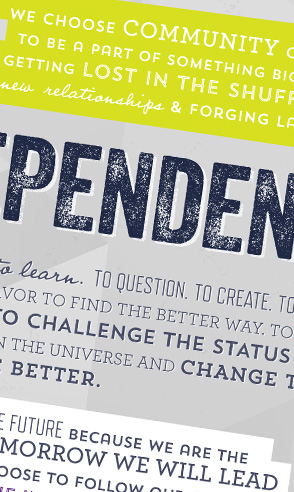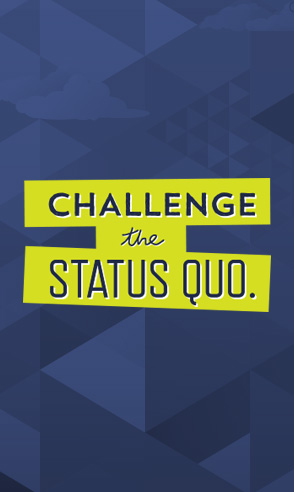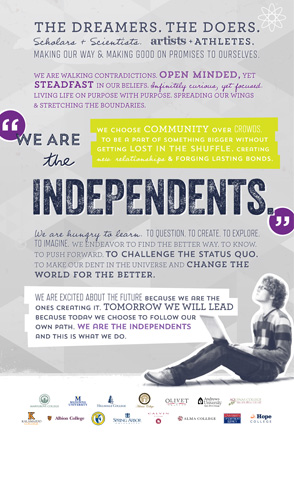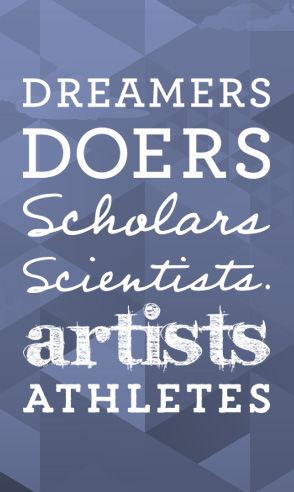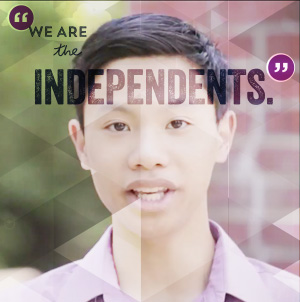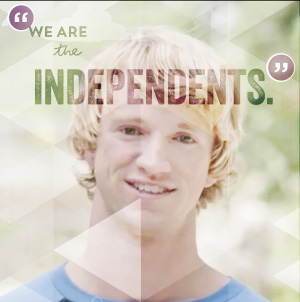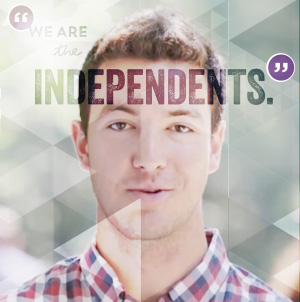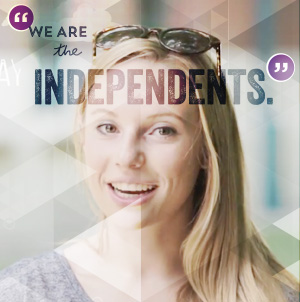Archive for
Albion College Announces The ‘Michigan 2020 Promise’ Scholarship Exclusive To The Incoming Fall Class
No one should forgo education as a result of heightened financial duress stemming from the COVID-19 pandemic. That’s why Albion College announced a new and substantial scholarship program – the Michigan 2020 Promise.
This scholarship will assist Michigan families who have college affordability concerns due to COVID-19. Exclusive to graduating high school seniors and transfer students, the Michigan 2020 Promise will cover 100% of tuition and fees for Michigan students’ whose families make under $65,000 annually, after the Michigan Tuition and Federal Pell grants are applied. Families making over $65,000 at minimum will receive $92,000, or as high as $136,000 in Albion College scholarships over the course of 4 years.
“The COVID-19 pandemic has not only denied graduating seniors with the opportunity to walk in a high school graduation ceremony, it has evoked anxiety and concern for the financial and educational future of Michigan families,” said Dr. Mauri Ditzler, President of Albion College. “Now more than ever, Albion College is committed to making higher learning accessible through this substantial scholarship, waived entrance exams and unrivaled value. Even in the face of uncertainty, Albion provides the hope, help and resources to empower Michigan students and families to reclaim ownership of their educational future, and the power to make quality, life-advancing decisions on their own terms.”
The program is a testament of Albion’s incredibly generous alumni, loyal donors and board of trustees. In fact, the Michigan 2020 Promise was made possible by a single, benevolent donor whose gift inspired the decision to offer the Class of 2020 this support.
In the wake of the COVID-19 pandemic, entrance exam testing dates were postponed to the fall. To lessen this undue stress and make the hope of higher education more readily attainable, Albion College will also be waiving ACT and SAT scores as a prerequisite for admissions—exclusive to the fall 2020 incoming class.
The opportunity to apply for a Michigan 2020 Promise scholarship expires on May 1.
Visit albion.edu/MI20promise for more details!
Make Your College Campus Visits, Virtually
While in-person admissions visits at Michigan’s top 14 private colleges and universities have been canceled due to the coronavirus pandemic, prospective students can still explore these beautiful campuses with the click of a button!
With virtual tours available, you can still get the chance to “walk” the campus, see and feel what life could be like for the next four years. The online tours not only give you a peak into each campus, but many schools even allow you to schedule an online information session with a live admissions counselor! Get your questions answered and make an informed choice now from the comfort of your home.
Get more information in the links below:
Alma College Virtual Tour | Schedule a Virtual Visit
Andrews University Virtual Tour | Sign up for a Virtual Preview
Aquinas College Virtual Tour | Schedule a Virtual Personal Visit
Calvin University Virtual Tour | Schedule a Virtual Visit
Hillsdale College Schedule a Virtual Visit
Hope College Virtual Tour | Schedule a Virtual Visit
Kalamazoo College Virtual Tour | Schedule a Virtual Visit
Madonna University Campus Tour Video | Schedule a Virtual Visit
Siena Heights University Virtual Tour
Spring Arbor University Virtual Tour | Schedule a Virtual Visit
University of Detroit Mercy Virtual Tour | Sign up for a Virtual Information Session
Private Colleges Team Up with Harvard Business School Online to Create Unique Hybrid Learning Program
Michigan Colleges Alliance (MCA) is collaborating with Harvard Business School (HBS) Online to offer students at participating MCA campuses a blended learning program, and an opportunity to earn an HBS Online course credential. In the first phase, nearly 70 students from five MCA member colleges and universities completed the HBS Online’s Sustainable Business Strategy course in the spring.
“When we built this course, one of my hopes was that it could be utilized to educate young people about the important role that business has in tackling some of the challenging issues of our time,” said Harvard Business School Professor Rebecca Henderson . “The students and faculty from the MCA campuses who participated in this pilot are pioneers, and I look forward to seeing how they will apply the learnings from our course in their own communities.”
The participating colleges created a blended learning offering where students registered for the “sustainable business” course led by local faculty and featuring the HBS Online course led by Professor Henderson. Students then applied their learnings through projects with businesses that were facing sustainability challenges, including Wolverine Worldwide, Merrill, Adrian Steel and Thetford Corporation.
“This was by far the most interactive course I have ever taken,” said Mya Oleksiak , a sophomore at Adrian College . “I loved that the modules and field work put me in real-life situations, and the meetings with my professor and classmates tied it all together. It was a privilege to be part of it.”
“This was a huge opportunity to reinforce what I learned as a Sustainable Business major and to take it into the real world,” said Tyson Marsh , a senior at Aquinas College . “The conversations with people in my group, from Bangladesh and Australia , helped me see different ways to apply and approach sustainability, and it is really amazing to be able to help a big global company like Wolverine solve a real sustainability problem.”
“The HBS pilot is a perfect illustration of why MCA has become a national leader in private higher education collaboration,” said MCA President Robert Bartlett . “It embedded content from the most prominent business education brand and a global learning network into existing classes offered by our member campuses. It then connected student classroom experiences to real projects in local communities. This best practice, active pedagogy model has produced tangible outcomes for both students and local businesses throughout the state.”
MCA plans to extend the program with another Sustainable Business Strategy offering in the spring and other HBS Online courses in the future. MCA represents 14 of the top independent colleges and universities in Michigan. Participating colleges included Adrian College, Albion College, Andrews University, Aquinas College, and Spring Arbor University.
The Places You’ll Go: Greenhalgh Gift Opens Travel Possibilities to More Albion College Students
There is an incredible world out there ready to be explored and experienced for the college student willing and eager to find it. And nothing should stand in their way. The new Albion College Stephen I., ’74, and Susan Brochu Greenhalgh, ’75, Endowed Student Experience Fund will help make that happen. The $250,000 gift will support travel costs for students with financial need who wish to participate in faculty-sponsored academic trips.
“The stigma that attaches to students who can’t go because of financial issues, that bothered me,” said Greenhalgh, a Pontiac native who earned his bachelor’s degrees at Albion in anthropology and sociology, then earned his law degree from Washington & Lee University in Virginia in 1977. “Other students would come back to class and talk about their experiences and there were students who couldn’t go. I thought the stigma was very unfortunate.”
The gift is intended for travel only when a faculty member is present and purely for academic purposes. It should benefit multiple students each year.
Now retired and living in Boulder, Colo., after a career with the Bodman Law Firm in Detroit (where he was a corporate attorney for the Detroit Lions among other clients), Greenhalgh was first intrigued by the idea of helping deserving students on faculty-sponsored travel several years ago after talking with Albion religious studies Professor Jocelyn McWhirter, who for years has sponsored the biennial Holocaust Studies Service-Learning Project trip to Poland.
But there were other faculty-student events as well, including First-Year Seminar trips and the yearly excursion for the Center for Sustainability and the Environment, Greenhalgh noted.
“There were students who were missing out,” he said.
When McWhirter learned what the Greenhalghs were working on to help these students, she was pleased.
“It broadens their horizons,” she said. “I think these trips take students into an unfamiliar world. And when they enter an unfamiliar world, whether it’s in the U.S. or a destination outside the U.S, I think it gives them a new perspective on the world. It fosters skills of adjusting to another culture, adjusting to how to move within another culture, even learning a strange language. I think in the case of my trip, and other trips, it introduces students to new people and new history.”
And that’s exactly what the Greenhalghs were hoping for with this fund.
“This does two things,” said Greenhalgh, who has also served for 11 years as a member of the College’s Board of Trustees. “It helps the faculty and it provides more immediate opportunities for students from less affluent families. And I hope it provides life experiences by going to places like Europe and Africa for students who otherwise might not have that opportunity. It all falls under the rubric of experiential learning, and I believe that experiential learning can make all the difference in a liberal arts education.”
And not only will the new gift sustain current travel projects, it could lead to opportunities for more trips to different areas for more students.
“It’s great for students who don’t have the money,” McWhirter said. “These trips are an experience that can’t be had by staying where you are.”
When is the best time to visit colleges?
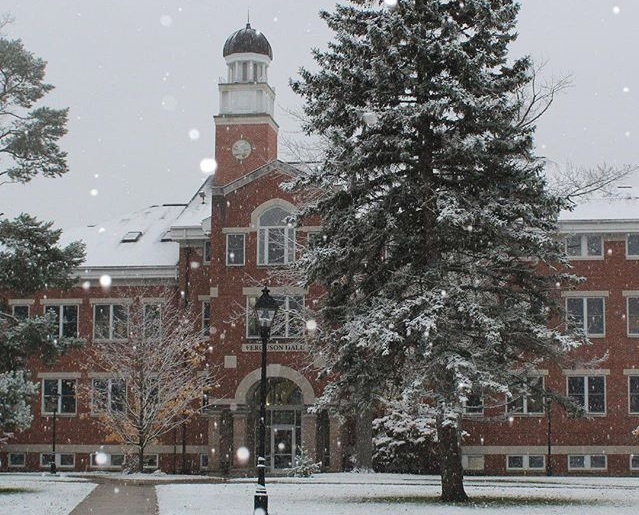
(Albion College, voted 12th Most Beautiful College in Winter)
It’s winter, and the tundra is setting in – at least it is here in Michigan. The last thing you are thinking about is planning a trip to visit campuses. Those long walks across snow-covered quads are certainly less appealing when the temperatures are teetering at the same level as the number of layers you’ll be wearing to stay warm. Or maybe you are a freshman or sophomore, and it’s just “not time yet.”
So, “When is the best time to visit?” The answer may not be what you expect. Here are some tips for getting the most out of campus visits:
Time of year:
As summer strolls in and the school year winds down, families across the country are gearing with plans to visit college campuses. Tours are crowded, staff is minimal, and quads are relatively barren. Although the summer months are more convenient for your time, ideally you should try to plan your visits when classes are in session and the campuses are full of life. Think of it like trying on a pair of new shoes: do you get the proper assessment while sitting? No, you get up, walk around, and perhaps jog in them… as it should also be done visiting campuses. Simulate the day-to-day as if you are attending the school. It doesn’t necessarily mean go in the dead of winter, but consider this: it may be cold, but it’ll also be cold while you attend, won’t it?
Age of student:
It can be very rewarding to visit colleges and universities before your junior and senior year (read: before it’s decision time). You are less concerned about choosing and “buying” when you are simply “window shopping” and more interested in checking out the inventory. Expose yourself to as many different kinds of places—big schools, small schools, research universities, liberal arts colleges, urban campuses, places way out in the country—to develop a broad perspective of all the different options. Then, when it is time to make a decision, you’ll have a better foundation on which to choose.
Before stepping foot on the first campus (and each one after that…):
Your new mantra: Relax, enjoy, decide later. Resist the impulse to judge immediately, good or bad. Your first reaction is bound to be emotional, and usually overly positive—college is really cool! Sleep on it. Weigh your impressions against the other schools you visit and try to remain as objective as possible so your rose-colored glasses don’t allow you to overlook things.
How to choose:
As you visit the campuses, allow your senses to guide you. Really like something? Take note of it. Feel like something’s missing? Take note of it. Gut instinct is usually pretty accurate. Additionally, the perceptions from your visits will come in handy when completing your college applications. Remember this: tying personal experience to the campus environment will blow the minds of the admissions department!
What to look for:
Focus on fit. We perform at our best when we have a level of comfort, belonging, and value. Questions to ask yourself: How does the college meet my academic needs? Will I be challenged appropriately? Is the style of instruction a good match for how I learn? Does the college offer a community that makes me feel “at home?” Does the college offer extracurricular activities that interest me?
After the visit, before you leave:
Connect with the recruiter. Colleges and universities typically assign admissions personnel to different areas of the country for recruiting efficiency. If your area’s recruiter is available, definitely introduce yourself. Either way, get that person’s contact information. Consider him/her as your “go to” person when you have important questions later in the admissions process. And remember this: there is nothing insignificant nor too embarrassing to ask. The admissions staff is there to help!
What to do next:
Record your visit. Make notes as soon as you are able. The more campuses you visit, the more they will begin to blend together, especially from memory. Take pictures to give yourself a visual index of what you’ve seen to avoid confusion later.
And finally:
Enjoy the process. It can be easy to get lost in the excitement and have that energy turn into anxiety. Relax. Start the search early. Visit during the school year to witness the campus’s true environment. Trust your senses and take notes.
As you map your college visit road trip, include a few of Michigan’s top 14 private colleges and universities on your list. These schools are purposefully smaller and emphasize “community over crowds.” Often comparable in cost to Michigan’s public institutions, the independents boast higher four-year graduation rates, outstanding faculty who help students forge their own paths, and smaller class sizes for a truly unique and personal experience.
Be bold. Be different. Go independent.
Your One-Stop, College Admissions Connection: Virtual College Fair
We’ve said it before. The best way to choose your own path is to visit a college campus… or three. Breathe the air. Wander the student center. Sit in on a lecture. Chat up a few professors. Grab a meal in the dining hall. Stroll through the quad.
But the college search doesn’t usually start with a visit to campus. You might begin by looking at websites or admissions booklets, or attending a college fair to learn more. Pixels and pages are a start, but nothing beats talking to a person, and college fairs can be time consuming to attend. Now, there’s a solution!
Enter the Virtual College Fair. It’s never been easier to connect with a college admissions office and get your big questions answered.
The Virtual College Fair offers free access to video recordings and live streams from Michigan’s top private colleges and universities. Watch the recordings, pick your favorites (or pick them all!), and then register – individually or with your family – to attend a live and interactive web-based Q&A session with admissions and other college representatives. Learn more here.
Like what you hear? Reach out to the college to continue the conversation and maybe even schedule a visit!
Upcoming Live Q&A Sessions
December 4, 2018 at 7 PM: Alma College
December 4, 2018 at 8 PM: Aquinas College
December 5 , 2018 at 7 PM: Madonna University
December 6, 2018 at 7 PM: University of Detroit Mercy
December 6, 2018 at 8 PM: Calvin College
December 11, 2018 at 7 PM: Albion College
December 12, 2018 at 7 PM: Spring Arbor University
December 13, 2018 at 7 PM: Hillsdale College
Major Gift to Albion College Will Transform U.S. Pre-Medical Education
The Wilson Institute for Medicine, created through a $5.1 million gift from Lisa and James Wilson, ’79 ’77, will empower faculty across disciplines to meet head-on the rapidly evolving medical-school landscape.
Through updates and enhancements to the curriculum, Albion will be at the vanguard of American pre-med programs.
With medical education’s significant changes in the 21st century—recalibrating to give increased emphasis to the discipline’s universal human and social aspects—there is growing concern in the field that the core pre-medical curriculum, virtually unchanged for decades, must similarly adapt.
Some say the need is urgent. And a major gift to Albion College will put the liberal arts institution out in front nationally, leading the way in closing the undergraduate preparation gap.
In what amounts to a $5.1 million statement, Dr. James Wilson, ’77, and Lisa Wilson, ’79, have established the Lisa and James Wilson Institute for Medicine at Albion College. It’s the largest gift by an individual or couple in the history of the College, which quickly has seen a distinct goal emerge on campus as it forms plans and action steps for the months and years ahead.
“It’s time for us to once again take the lead in innovating pre-medical education,” said Dr. Mauri Ditzler, president of Albion College. “Medical schools have changed dramatically in the last decade. We need to make certain that pre-medical education keeps up with that. We’ve always been a leader in this field; it’s time for us to be a role model.”
An evolution from the former Institute for Healthcare Professions, the Wilson Institute for Medicine will rethink and advance undergraduate teaching and preparation so that all Albion students who aspire to become physicians can realize their dreams in a fast changing medical-education environment. Through updated and more pertinent pre-med and pre-health coursework, Albion students will have a competitive advantage in gaining entrance to top-tier medical schools and in their overall career paths.
“People have been thinking about this idea for a while, but no one has really tackled it yet,” said Dr. Bradley Rabquer, associate professor of biology and director of the Wilson Institute for Medicine. “As the MCAT has changed, as medical schools have revamped their curricula, there is this large gap at the pre-med side, in the undergraduate curriculum. So we’re really striking while the iron is hot. The opportunity now is great.”
Increasingly, medical schools are incorporating patient care and interaction—traditionally the focus of the later clinical years—into the curriculum’s first two years, which previously had been dominated by “heavy, hard sciences” according to Rabquer. Today, he said, “there is more exposure to patients earlier, an emphasis on caring for people right at the start.”
This fall, a group of 10 faculty from the departments of Anthropology and Sociology, Biology, Chemistry, Mathematics and Computer Science, Physics and Psychological Science will review changes in medical school curricula, read current literature on some of the resulting outcomes, and begin to merge those findings with current best practices in undergraduate teaching. Following that pedagogical groundwork, the professors will move into course development in the winter and spring, Rabquer said, “so that we can roll out some new integrated, novel courses in time for the fall 2019 semester.”
The Institute, and Albion’s intentions, are already being noticed at the medical-school level.
“The practice of clinical medicine has changed dramatically in the last 20 to 30 years,” said Dr. James Woolliscroft, professor of medicine and former dean of the University of Michigan Medical School. “And yet when you think about the whole preparation that students go through in their undergraduate years, it hasn’t changed that much. Prerequisites to most medical schools have remained essentially constant for over a hundred years despite dramatic changes in the practice of medicine and the scientific basis thereof.
“It’s very timely that this is being looked at and readdressed,” Woolliscroft continued. “I see Albion leading what will hopefully be a national movement of liberal arts colleges who are intent on preparing their students not for the past, but for the future.”
The gift follows several years of conversation between Albion faculty and the Wilsons, acknowledging a gap that appeared to be widening in the discipline and tapping into their passions and expertise to do something about it.
“We’re at a time in the whole ecosystem of medical schools and colleges and residency programs where this kind of change would be welcome,” said Dr. Wilson, Rose H. Weiss Orphan Disease Center director’s professor and director of the gene therapy program at the University of Pennsylvania’s Perelman School of Medicine. He received his M.D. and Ph.D. from the University of Michigan after graduating Phi Beta Kappa with a B.A. in chemistry from Albion. “I’m confident that the Albion College community will have the resolve and the agility to be able to move in this very different and transformative direction.”
“Over the years, I’ve gotten to know many of the students Jim has taught who have worked in his lab, and I saw their struggles and I saw how difficult it was for them,” said Lisa Wilson, who after receiving her B.A. in economics and management from Albion worked in hospital administration for a number of years. “What I hope the Institute accomplishes is that every pre-med student at Albion College who qualifies and works really hard reaches their dream to become a doctor.”“Our hope,” Jim added, “is that with the kind of resources we can bring and leverage to bring in other resources, we can enable this to happen.”
And Albion College, its president added, is the ideal place to fulfill the vision.
“A liberal arts college like Albion is nimble. We can make changes in a year or two that a bigger institution might take a decade to accomplish,” said Ditzler, himself a chemist by training. “The innovative work we’re doing in pre-medical education through the Wilson Institute should not be underestimated. This is a fundamental change in the way we and others will think about preparing students to become doctors. But it’s something that we’re well prepared for. The faculty and staff from all over the institution, as well as our alumni, are committed to making this work.”
Michigan Colleges Alliance Awards $32,500 as Part of Independent InnovatorsNetwork Scholarship
Michigan Colleges Alliance (MCA), an organization made up of 14 independent colleges and universities across Michigan, has recently awarded $32,500 in scholarships to six recipients through its Independent InnovatorsNetwork. Recipients consisted of students from Hillsdale College, Aquinas College, Kalamazoo College, Spring Arbor University, and Albion College.
The Independent Innovators Network awards scholarships based on the strength of student applications outlining a business or social entrepreneurship concept. The program first received funding from the Council of Independent Colleges, ranking first among some 20 states competing for grant support in a national RFP.
The Independent Innovators Network, with national and statewide support, is quickly becoming a leading MCA initiative, positioning private, liberal arts students and graduates at the forefront of entrepreneurship and economic development in Michigan. Substantial funding for the program comes from The Jandernoa Foundation, Ford Motor Company Fund, Armstrong International, and Enterprise.
This is the third round of the scholarship competition. Any student attending one of the 14 member colleges and universities of Michigan Colleges Alliance can apply. The most recent competition received 25 applicants across 11 schools, and a total of six winners were awarded a scholarship for their innovative ideas. Scholarships awarded ranged from $2,500 to $7,500. Scholarships through the Independent Innovative Network vary and are given based on multiple factors. Funding, the number of submissions and quality of submissions affect the number of recipients and the amounts given. A steering committee of business leaders ultimately decides how the scholarships are awarded.
Recipients of the award were not the only ones who received an award. Faculty who sponsored winning students also received a $500 stipend for helping mentor and encourage students.
Michigan Colleges Alliance represents 14 independent colleges and universities throughout Michigan, and works to develop collective initiatives that produce positive student outcomes.
As part of its We Are The Independent’s collective promotional campaign, MCA launched the Independent Innovators Network to encourage students at its 14 member colleges and universities to be independent and to follow their own path. The program gives students at smaller schools the unique opportunity to create a culture of entrepreneurship within Michigan higher education, and to stimulate a flow of new product and business ideas in Michigan. The program supports MCA’s overall goal to align the preparation of its graduates with the future skills, qualities, and experiences needed for Michigan’s continued economic progress and success.
“The Independent Innovators Scholarship competition is one of many ways MCA cultivates college educated talent for our state and nation,” says MCA President Dr. Robert Bartlett. “Collectively, our members represent Michigan’s “third largest university,” with more than 41,000 students. This program gives students in all majors the opportunity to think, collaborate, and explore their futures as entrepreneurs.”
All entries are reviewed by MCA board members, scholarship donors, and representatives from partner entrepreneurial organizations across the state. This year’s review panel included representatives from Steelcase, Ford Motor Company, PVS Chemicals, ASG Renaissance, as well as MCA faculty.
The program plans to host the next round of the scholarship competition in fall 2018
Albion College Makes Equestrian Center Dream a Reality
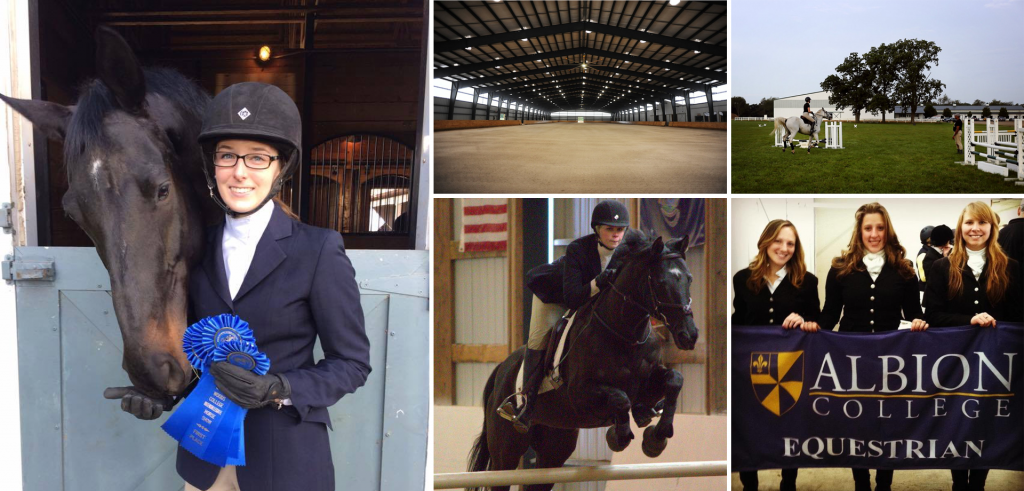
College is where dreams, no matter how fanciful, find a way.
So more than a decade ago, when an Albion College student wrote a thesis with a crazy suggestion — hey, wouldn’t it be great if there was a place to board horses near campus? — she wasn’t laughed off college.
Instead, her idea was embraced, massaged and worked until it became reality. The super-cool Nancy G. Held Equestrian Center opened in 2004. The $1.8 million facility accommodates 79 horse stalls.
Now, it’s expanded again, as crews put finishing touches on a new indoor area, the largest of any kind among colleges nationwide. About 200-1,000 people are expected each weekend for competitions.
“It started as a joke and then turned into something more serious,” Randi Heathman, a 2003 Albion graduate, told WWMT-TV 3.
“My thesis projected that we would get approximately 15 new students per year that we wouldn’t get without this here and I think in the first year we got 30. It’s been a substantial enrollment booster ever since the day it opened.”
What’s even more remarkable: Albion College doesn’t even offer an equestrian degree. But administrators green-lit the project because they saw students had passion. And, as often the case in life, if you have passion, almost anything is possible.
“Albion prepares students for whatever career they want to go into,” Heathman, who is now the college’s equestrian adviser, told MLive.
“We want students to come here to be academically challenged and to continue or start riding if they love to do so. Those who want a career in equine usually get there one way or another.”
The project probably wouldn’t have happened at big state schools. But there’s unique bond between students and faculty at Albion and Michigan’s 15 independent colleges and universities.
Faculty know students because they actually teach classes, rather than sloughing them off on graduate assistants. Professors not only help students chart their own path and pursue their passion, but encourage them to take a wild idea, tie it to a string and see if it can fly.
Proudly different, purposefully small, independent colleges teach students to say “why not?” rather than “why”?
Often less expensive than public institutions, the independents boast higher four-year graduation rates for a truly unique and affordable experience.
Be bold. Be different. Go independent.
Kalamazoo Promise Makes Private Education Within Reach
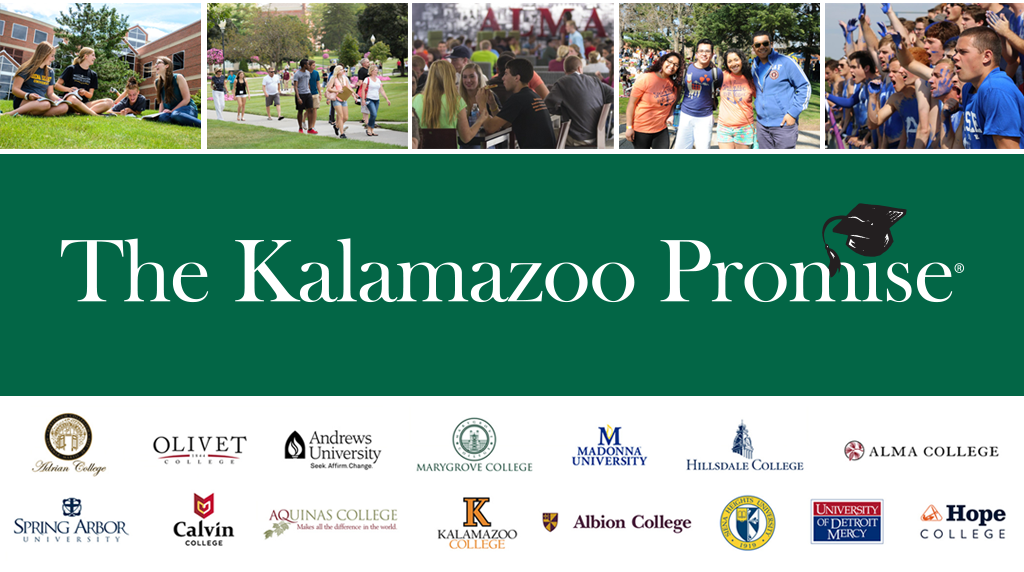
Almost everyone nowadays can cite scary statistics when it comes to the cost of college education.
Nationwide, the average annual tuition at private schools has more than tripled in 30 years jumping to $32,405 this year, according to inflation-adjusted statistics from the College Board.
But the cost of an elite private school education is nothing for students in Kalamazoo public schools.
You read that right.
The cost of Michigan’s 15 independent colleges and universities is zero for students who graduated from Kalamazoo Public Schools and attended since kindergarten. Graduates who attended since at least seventh grade will receive 75 percent of their tuition.
The Kalamazoo Promise is a revolutionary program that is changing lives and putting college in reach for 5,000 eligible graduates since it was launched and funded by anonymous donors in 2005.
The schools now send 85 percent of students to college, whose graduates can expect to earn $1 million more over their lifetime than peers whose education stopped at high school.
And what an education they can get, especially at Michigan’s independents: Adrian College, Albion College, Alma College, Aquinas College, Calvin College, Hillsdale College, Hope College, Kalamazoo College, Marygrove College, Olivet College, the University of Detroit Mercy, Andrews University, Madonna University, Siena Heights University and Spring Arbor University.
The schools pride themselves on helping students forge their own path. Classes are taught by professors, not teaching assistants, with average class sizes of just 17.5 students.
The independents open doors to a host of careers, from business and engineering to education and nursing, supported by a nurturing network of alumni who have become leaders in their fields.
And the independent colleges look like the world around them. One in 4 students at Michigan private colleges and universities is African American, American Indian, Asian, Hispanic or Latino.
Be bold. Be different. Go independent.








